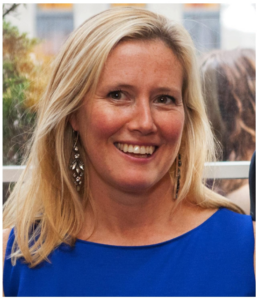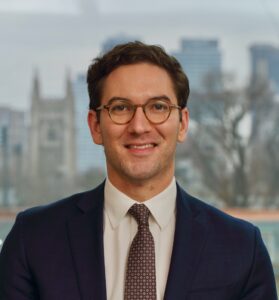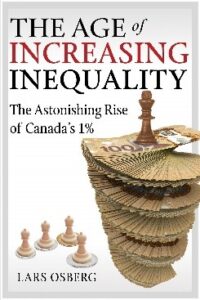TRN303H1
TRN303H1: Ethics and Society
For the 2023-2024 academic year, there are three sections of TRN303H1.
TRN303H1-F LEC0101 Ethics and Society
Course Description
This course looks at a selection of contemporary social and political issues with significant ethical and legal implications. A variety of topics will be canvassed during the term, including, among others, the nature and compensation of surrogacy in society, the expanding limits of euthanasia, the treatment of and respect for non-human species, and the decriminalization of sex work among other topics. Threaded throughout this exploration of different socio-political and ethical issues is a discussion of how we think about researching these questions and the different methodologies that can be deployed in research. The course material for this class will consist of various source documents including journal and book excerpts, newspaper articles, cases as well as research reports. In completing the work for this course, students will be required to present a research topic, complete a research paper as well as participate in weekly class discussions.
2023-2024 Instructor
|
Jennifer Leitch Jennifer Leitch, JD, LLM, PhD is a researcher and law teacher, primarily in the area of legal ethics and professionalism, access to justice, torts and dispute processes. Her PhD dissertation at Osgoode included ethnographic research involving self-represented litigants’ experiences participating in the civil justice system. She continues to research and publish in the fields of access to justice and legal ethics. She also practiced civil litigation at Goodmans LLP in Toronto. Jennifer has been an adjunct faculty member of Osgoode Hall Law School and the University of Toronto Faculty of Law where she taught legal ethics and professionalism, legal procedure and legal research and writing as well as torts. She is the Associate Director and an instructor in the Ethics, Society & Law Program at Trinity College, University of Toronto and a Senior Research Fellow with the Canadian Forum on Civil Justice. She is also the Director of the National Self-Represented Litigant Project situated at University of Windsor, Faculty of Law. |
 |
TRN303H1-F LEC0201 Ethics and Society – Human Dignity
Course Description
Human dignity pervades contemporary ethical discourse, serving as a legal and political touchstone in both domestic and international contexts. Even so, it is a hotly—perhaps even essentially—contested concept, and there is sharp disagreement over the most fundamental questions. What exactly does dignity mean? What does it require of individuals, social institutions, and the law? And how, if at all, should human dignity inform ethical inquiry and public decision-making? This course uses human dignity as an ethical value and frame to illuminate contemporary social issues. It begins with a brief exploration of dignity’s philosophical foundations, evolution, and multiple meanings before turning to dignity’s use in salient domains of ethical inquiry.
2023-2024 Instructor
|
Connor Ewing Connor Ewing is assistant professor of Political Science and Fellow of Trinity College at the University of Toronto. Located in the fields of American Politics and Public Law, his research interests span American political thought and development, constitutional law and theory, federalism, rights jurisprudence, human dignity, and constitutional design. Previously he was a Kinder Institute Assistant Professor of Constitutional Democracy and Assistant Professor of Political Science at the University of Missouri and, before that, a Postdoctoral Research Associate in the Program on Constitutionalism & Democracy at the University of Virginia. He received his PhD in Government from the University of Texas at Austin, AM in Social Sciences from the University of Chicago, and BA in Philosophy and Political Science from the University of Wisconsin—Madison. |
 |
TRN303H1-F LEC0301 Ethics and Society – Rising Economic Inequality in Canada
Course Description

In many states, including Canada, economic inequality remained stable from about 1945 onward; but beginning in about 1980, the age of increasing economic inequality began. The very rich have been receiving increasingly greater shares of national income while the rest of the distribution has been stagnating or falling behind. The age of increasing inequality presents specific social issues to assess, such as the economic efficacy of education, housing affordability, debt, luxury brand consumption, CEO compensation, political influence, unemployment, and inflation control. Lars Osberg’s The Age of Increasing Inequality: The Astonishing Rise of Canada’s 1% is our guide. Though written by an academic economist, it is written for a non-specialist audience. Our goal is to become familiar with the basic state of increasing economic inequality in Canada, including its causes, effects and implications, especially from a normative perspective.
Assessment: early 2pp research proposal on selected topic (~15%); <10min presentation on topic (~20%); end-of-term essay on topic (~11pp, ~45%); class participation (~20%).
2023-2024 Instructor
|
John Duncan John Duncan is director of the University of Toronto’s major program in Ethics, Society and Law (ES&L, we say “E, S AND L”) hosted by Trinity College. ES&L enrolls 75 new students from more than 500 applicants annually, and features small seminar courses, innovative programing, a focus on sustainability, and more traditional courses. John is also the academic director of the Ideas for the World program at Victoria College in the U of T. John’s interests include outreach and engagement co-learning (please see, e.g., “Humanities for Humanity”), critical issues in contemporary society and politics (please see, e.g., “Three NATO gambles in Ukraine”), and the history of philosophy and the humanities (please see, e.g., Rousseau and Desire). He is involved in peace research and directs the Humanities for Humanity program at Trinity. For more information, please see his web presence on Academia.edu. |
|
